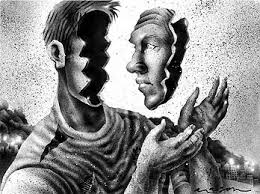Observe Your Self – The Niyamas

The principles of Niyama…emphasize the importance of self-discipline. Mastery of yoga would be unrealizable without the observance of the ethical principles of yama and niyama.
BKS Iyengar – Light on the Yoga Sutras of Patanjail – commentary on Sutra II.32
Freedom demands a complete elimination of authority, external as well as internal. It is only then that the individual, being on his own, takes complete responsibility for all that he does.
Rohit Mehta – Yoga, the Art of Integration – pp.139-141
How and at what level do we typically look at ourselves? We can look in a mirror, we can compare ourselves to others, we can think certain thoughts, we can believe certain things. At every level we must question and investigate to find knowledge and freedom apart from any influence.
The Niyamas, the second limb of yoga and our personal observances, are the realm that we can start to peel away these layers of “external and internal authority” and influence and turn to our own deeper Self for answers. As with the Yamas, the first limb of yoga, the Niyamas have to be looked at not just at the surface, but at every layer of our being. So, what questions might we start to ask to delve deeper into these Niyamas and therefore clear away (literally and figuratively) the obstacles on the path toward Self-realization.
SAUCA : CLEANLINESS
- what gives you the feeling of “cleaning the mind” ? “cleaning the soul”?
- has the practice of yoga given you a more clear picture of what “cleanliness” means in your life?
- what does your alone-time feel like?
SANTOSHA : CONTENTMENT IN ALL THINGS
- what makes you “content” or what does your contentment rely on? how does contentment feel?
- can you be content even with things not going well in life? how might that be encouraged?
- what disturbs your contentment and what are some practices that may help to regain it?
TAPAS : DISCIPLINED PRACTICE or AUSTERITIES
- fire kindles transformation and reduces impurities – where do you get your “FIRE”?
- what impurities remain with you (subtle or gross) and can you face those with determination and discipline?
SVADHYAYA : SELF-STUDY or STUDY of SCRIPTURE
- has yoga brought you pathways to study yourself better? on what levels?
- what texts do you find help you turn your attention inward and open up doors to divine inspiration?
- what are the different ways you relate to yourself?
ISVARA PRANIDHANA : SURRENDER TO A HIGHER IDEAL/POWER
- what does surrender mean to you? is it a difficult process or easy?
- what is your ideal? your God? your Divine?
- Rohit Mehta describes this Niyama as a “state of openness”. Others may more commonly refer to this as “letting go”. Where do you continue to be “closed off” and what do you hold onto that impedes this process of surrender?
We will meet on December 27th at 11:00am for our next discussion of the Yoga Sutras. We will be specifically covering Sutras II.33 and II.34, but these two sutras have to do with both the Yamas and the Niyamas and how we develop them in our life and practice.